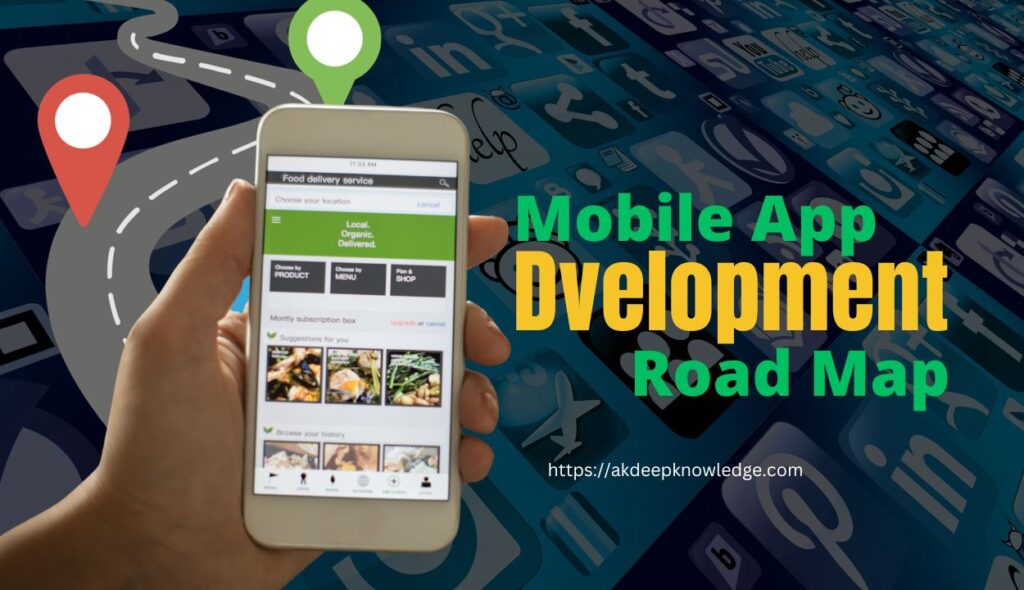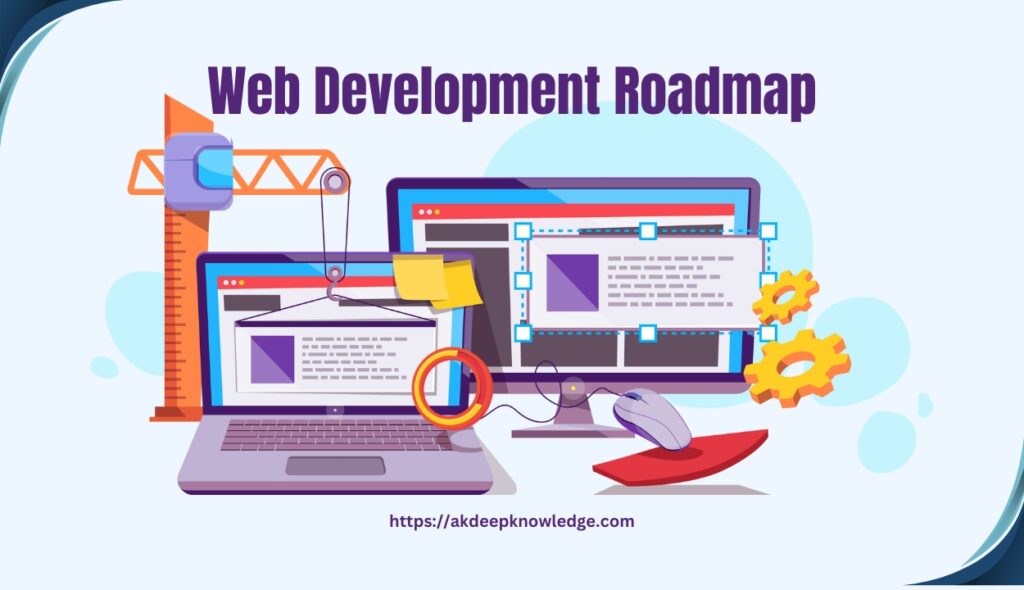Introduction (Machine Learning Roadmap for Beginners)
Machine learning is an exciting field that can transform industries. Not just for professionals or computer scientists, anyone can start learning and applying machine learning concepts with the right guidance.
In this blog post, we share a simple machine learning roadmap to help you navigate this exciting area.
Understand the Basics
Before we dive into the exciting world of machine learning, let’s start with the basics. Just like you learn how to ride a bike before you compete in a race, you need to understand the basics. This includes an understanding of how computers work and some programming skills. One of the most popular languages for beginners is Python which is known for its simplicity.
Start with Supervised Learning

Supervised learning is like teaching computers for be afraid models. Imagine you have some pictures of cats and dogs, and you want the computer to tell you which is which. You start by showing him pictures to which you already know the answers. The computer learns from these patterns and can quickly tell whether a new image is a dog or a cat.
Unsupervised Learning

In unsupervised learning, the computer independently examines the data in search of hidden patterns or clusters. It’s like providing the computer with a collection of disorganized puzzle pieces and asking it to fit them together into comprehensible images without any guidance. Unsupervised learning is frequently applied to tasks like grouping together comparable data points in clusters.
Deep Learning (Neural Networks)

let’s talk about deep learning, which is like the superstar of machine learning. Artificial neural networks modeled after the human brain are used in deep learning to address complicated problems.
These networks can recognize faces in photos, understand spoken language, and even play games like chess or Go at a superhuman level. It’s exciting but can be a bit challenging, so take your time to explore it.
Pick a Programming Language & Get Started!

To embark on your machine learning journey, choose a programming language like Python. It’s beginner-friendly and widely used in the field. There are tons of free resources and tutorials available online to help you get started.
1). Learn Linear Algebra
Don’t worry; you don’t need to be a math genius for machine learning, but having some knowledge of linear algebra can be quite handy. It helps you understand how data is manipulated in machine learning algorithms. There are plenty of online courses and videos to make this topic easy to grasp.
2). Learn Statistics
Statistics is another essential tool in your machine learning toolbox. It helps you to decode facts and generate insightful decisions. Again, many user-friendly resources can help you get comfortable with the basics.
3). Learn About Data
Data is the lifeblood of machine learning. Learning how to collect, clean, and prepare data is crucial. Start with small datasets or find publicly available ones to practice on.
4). Learn ML Algorithms

Mastering the core machine learning algorithms, like decision trees or linear regression, will give you a solid foundation. These algorithms are like the building blocks of more complex models.
5). Learn Python Libraries
Python has powerful libraries, such as Scikit-Learn and TensorFlow, that make machine learning more accessible. Dive into these libraries to simplify your machine learning projects.
6). Learn Deployment
Once you’ve created a machine learning model, you’ll want to deploy it so others can use it. Understanding deployment processes is vital to bring your projects to life.
7). Practical Projects
Hands-on experience is where the real learning happens. Start small with projects like image recognition or sentiment analysis. Platforms like Kaggle provide datasets and competitions for practice.
8). Build a Portfolio

Creating a portfolio on platforms like GitHub or a personal blog is a excellent way to showcase your machine learning projects, It’s similar to having your own digital portfolio to show off your abilities.
Additional Resources
Machine learning is constantly changing. Stay updated by following blogs, YouTube channels, and online courses to stay informed about the latest developments.
Conclusion
Congratulations! You have finished this tour of machine learning basics.
Remember, Machine learning is all about dealing with interesting problems, with practice and dedication, Soon, you’ll be investigating interesting uses for AI and building a name for yourself. Enjoy your learning journey!
FAQ’s
What are the essential steps in a Machine Learning Roadmap for Beginners?
Are there any recommended online courses for a Machine Learning Roadmap for Beginners?
What programming languages should I learn in a Machine Learning Roadmap for Beginners?
How can I apply practical projects in my Machine Learning Roadmap for Beginners?



